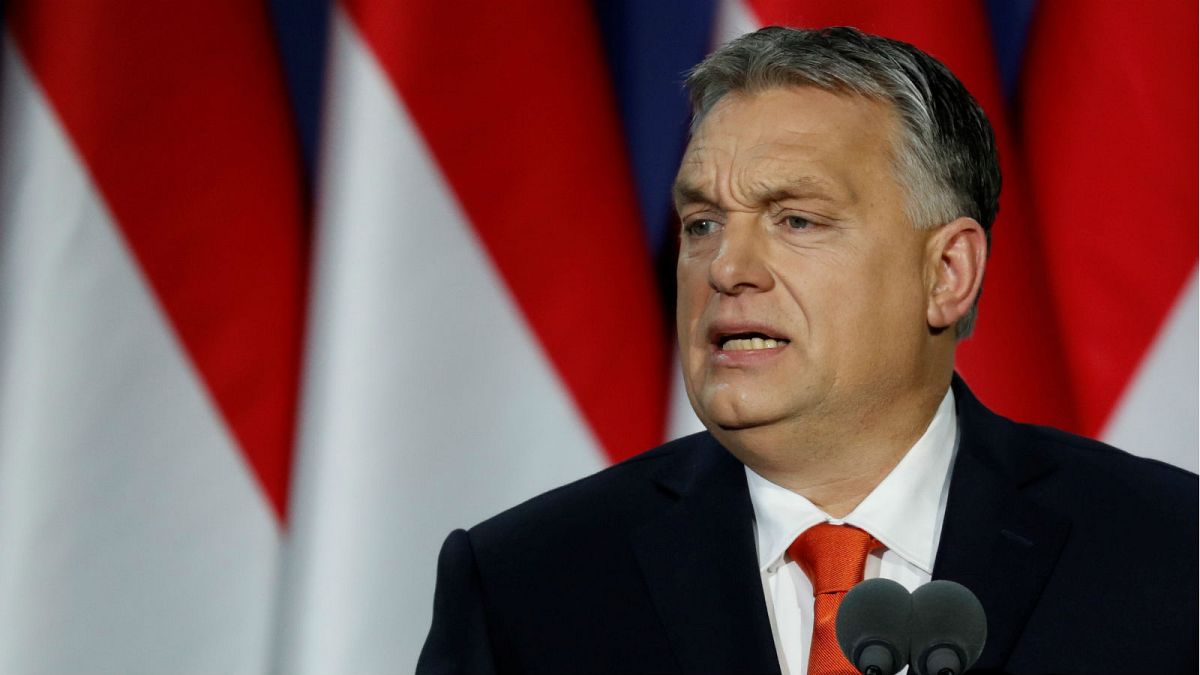European leaders have to finally take concrete action to stop Hungary's assault on civil society, writes Amnesty International's Gauri van Gulik.
By Gauri van Gulik, Amnesty International
"We do not want to be a diverse country. We want to be how we were 1,100 years ago here in the Carpathian Basin," said Hungarian Prime Minister Viktor Orban in a speech earlier this month. "Migration and mass population movement are bad, dangerous things which we want no part of,” he continued.
Today, parliament is due to debate a deeply disturbing bill that attempts to turn these backward-looking sentiments into reality. If passed, the new law would penalise NGOs that work on migration, which means many of the critical NGOs in Hungary. The general message in the proposed legislation is simple: migration is a bad thing. And by extension, anyone working on it will be punished.
The so-called Stop Soros Bill, which was tabled last Tuesday, purports to "protect national security" and borders but does neither of these things. Instead the bill, the latest populist move ahead of upcoming elections in April and only the latest in a series of deeply problematic laws and campaigns, aims to muzzle those who work to assist people in need and who dare to raise their voices.
The new draft law comes after the Law on the Transparency of Organizations Funded from Abroad entered into force in June 2017. Under that law, organizations receiving funding from outside Hungary must register with the authorities or face fines and administrative sanctions if they do not comply. We are challenging this previous law in court, and so is the European Commission who has taken an infringement procedure against Hungary to the European Court of Justice.
However, Hungarian authorities have shown no sign of being cowed. Rather, those previously thinly-disguised attempts to stigmatise critical NGOs have now morphed into a full-frontal assault which threatens the very existence of organisations doing crucial work in Hungary, including Amnesty International.
Under the proposed legislation, the Hungarian government would ‘identify’ NGOs which it deems are ‘supporting migration’ - an intentionally vague term. The work it covers includes basic, daily work of NGOs such as campaigning, ‘influencing courts’, preparing information materials, organizing networks and recruiting volunteers.
Such NGOs would be required to obtain authorization from the Minister of Interior to perform their basic functions. The minister would seek national security clearance for this - a procedure that could take up to nine months.
Meanwhile, organisations would be charged a tax of 25% on any foreign funding aimed at ‘organizing migration’. Failure to pay could lead to heavy fines, possible bankruptcy and the NGO being dissolved.
The proposals contravene Hungary’s obligations under international and European law to protect the right to freedom of association, expression and movement. The most harrowing part of the government's proposal is not even its threat to NGOs, but the threat to the people these organizations work to protect and serve. By cynically stoking hostility towards migrants in Hungary, this populist draft law also serves the purpose of conveniently diverting attention from serious flaws in government, ranging from corruption to increasing poverty.
Groups who provide vital services, and groups who fight for changes to Hungary’s draconian refugee and migration laws, could be shut down.
And we are no exception. Last February, Amnesty International was described by the governing Fidesz party as “one of those agent organisations” publishing fake reports and encouraging migrants to break the law, false claims aimed to create an atmosphere of fear and to silence critical voices. This week's proposed legislation would give the government carte blanche to target NGOs such as Amnesty on the flimsiest of pretexts.
This matters in Hungary, but also in Europe more widely, where we are seeing an increase in restrictions on civil society and a shrinking space for dissent and vital work. From the criminalisation of humanitarian aid for refugees to restrictions on foreign funding, dangerous trends are steadily creeping into European countries’ laws.
Yesterday, more than 250 organisations signed an open letter expressing their grave concerns about the new law and their solidarity with civil society and human rights defenders in Hungary.
European leaders, who have watched as Hungary crossed red line after red line, have to finally take concrete action to stop this assault on civil society.
How the EU and its leaders will respond to this escalation in Hungary will a litmus test for Europe. Viktor Orban is not the only populist politician on the continent with burning ambitions and politics that belong in a dark and distant past. In this period of repeated attacks on human rights, civil society organisations are among the last dissenting voices and in this climate, their work is more important than ever.
Gauri van Gulik is Europe Director at Amnesty International.
The views expressed in opinion articles published by Euronews do not represent our editorial position. If you want to contribute to our View section, email ideas to: view@euronews.com.
